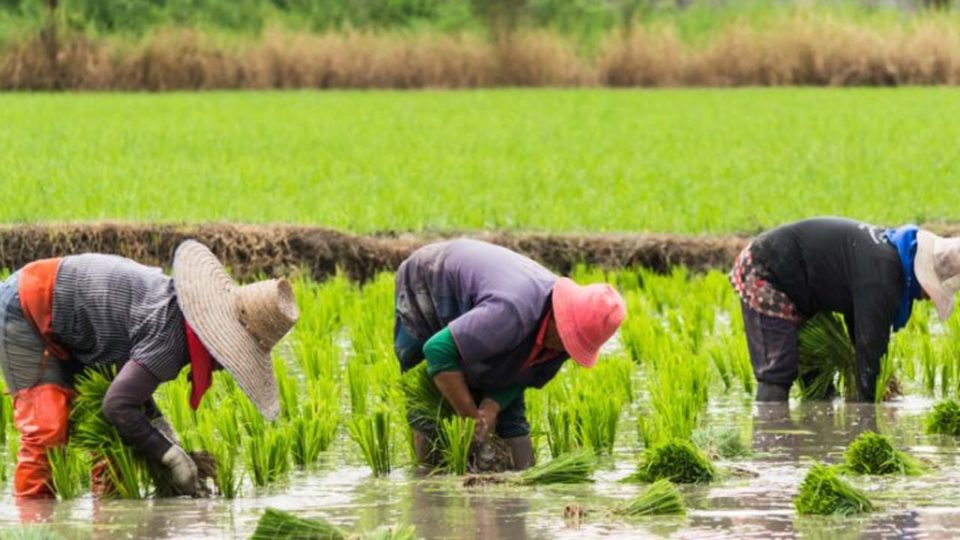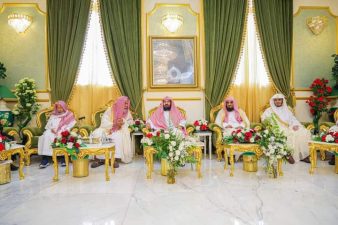By BASHIR ADEFAKA
“Through the food security initiative, we are promoting “Grow What We Eat” and “Eat What We Grow”. I am also delighted that more and more Nigerians are taking advantage of the opportunities in the agriculture and agri-business sector.” – President Buhari, June 12, 2020
Lauretta Onochie, a Presidency official that no longer needs introduction, is in the news again, this time with 12 highlighted reasons Nigeria’s Agric Revolution is not only real but also on course.
The Digital and Social Media Aide to the Nigeria’s President picked Wednesday September 23, 2020 as a day the Lord has chosen to remind Nigerians who ask to be told what the Buhari’s Administration has done about what a major aspect of its effort on making agriculture a vital segment of economic sustainability in the country.
She started by quoting the President’s past comments:
“I will stand my ground and maintain my position that under my watch, the old Nigeria is slowly but surely disappearing and a new era is rising in which we grow what we eat and consume what we make.” – President Buhari, December 14, 2016.
“We are determined to change Nigeria from an import dependent country to a producing nation. We must become a nation where we grow what we eat and consume what we produce.” – President Buhari, April 5, 2017.
Onochie, who spoke through her official Facebook handle, said, “President Buhari is determined to ensure that Nigeria grows what it eats and produces what it consumes. He has been determined to ensure this since he assumed office in 2015. One of the first significant programs he launched was the Anchor Borrowers Program, led and underwritten by the Central Bank of Nigeria (CBN).
“Since then, Agriculture initiatives like the Presidential Fertilizer Initiative (PFI), FarmerMoni, Livestock Productivity and Resilience Support Project (L-PRES), NIRSAL Agro Geo-Cooperatives Scheme, NIRSAL Multi-Peril Crop Indemnity-Index Insurance, Agriculture for Food and Jobs Plan (AFJP), N-Power Agro, and others, have been launched to support the presidential vision to revolutionize Agriculture in Nigeria. Many State Governments and Private Investors are equally keying into this Presidential vision, with emerging positive results, including but not limited to the following:
“1. In Kaduna and Kwara States, Olam invested $150 million to build Nigeria’s largest integrated animal feed mill, poultry breeding farm and day-old-chick (DOC) hatchery, and an integrated poultry and fish feed mill, respectively. These game-changing investments were commissioned in 2017.
“2. Ekiti State Government is partnering with Promasidor to revive the hitherto abandoned Ikun Dairy Farm. The project has seen a 5-million dollar investment from Promasidor. At full capacity, the Dairy farm will produce over 10,000 litres of milk per day, and employ more than 1,000 workers. In addition, a new rice mill is under construction in Ado Ekiti.
“3. In Kebbi, in May 2020, GB foods opened a 20 billion Naira Tomato Processing Factory, and adjoining farm, the second largest factory in Nigeria and the only fully backward integrated plant in ECOWAS – and has the largest single tomatoes farm in Nigeria. When fully completed (all phases), the factory will be the largest fresh tomatoes processing factory in Sub-Saharan Africa. The farm will produce industrial tomatoes in the dry season and soya beans in the rainy season. The soya bean oil will be used to manufacture GBfoods’ Mayonnaise.
“4. In Ogun, GB Foods in July 2020 opened its N5.5 billion state-of-the-art mayonnaise production factory in Sango, Ogun State. The soya beans to serve the plant will be farmed in its brand new farm in Kebbi State.
“5. In Anambra, a year ago, October 2019, Coscharis commissioned its brand new Rice Mill, a 40,000 MT modular Mill. A second phase of 80,000MT capacity is under construction. Total investment by Coscharis comes to about 12 billion Naira. Prior to that, in 2016 the Company began growing rice on its own farms, and now has more than 2,500 hectares under cultivation.
“6. Lagos State is building a 32-Metric-Ton per hour Rice Mill in Imota, one of the largest Rice Mills in Africa. It will produce 2.4 million bags of 50kg per annum, and create an estimated 250,000 jobs. It will source its rice from other States across the country, leveraging on the Anchor Borrowers Program of the Central Bank
“7. In 2018, Cross River commissioned its brand new 3 billion Naira Hybrid Rice Seedlings Factory to supply seedlings nationwide. The Factory, commissioned by President Buhari, is part of CrossRice, a multi-billion Naira Commercial Agriculture Development Project promoted by the Cross River State Rice Company Management Board, the Central Bank of Nigeria and Sterling Bank.
“8. Under the Presidential Fertilizer Initiative, which launched in January 2017, a total of 22 blending plants were resuscitated as at the end of 2019, with a combined installed capacity of over 2.5 million metric tonnes. In that period more than 18 million 50kg bags of Fertilizer produced and supplied for sale. Prior to the launch of the PFI, only 4 fertilizer blending plants were in operation in Nigeria, running at 10% capacity utilization.
“9. In Lagos, Dangote Group is building a 2-billion-dollar Fertilizer Plant that will be the biggest in the world, with a production capacity of 3 million tons of urea and ammonia per annum. It will commence production in the first quarter of 2021. It will make Nigeria the leading exporter of Urea in sub-Saharan Africa. Dangote Group in 2016 also launched a Rice Outgrower Scheme covering 150,000 hectares of land in Kebbi, Sokoto, Zamfara, Kano, Niger and Jigawa States, and is also building a 16MT/hour Rice Mill in Jigawa State, the first of six Rice Mills planned across the above-mentioned States.
“10.In Ondo State, Nigeria’s leading grower of cocoa, a 9 billion Naira Chocolate Factory has just been commissioned in September 2020, with the capacity to produce 2.8 million tonnes of chocolate per annum. According to the Governor, to guarantee the supply of cocoa beans to the factory, a 1,700-hectare cocoa plantation has been revived, with 250 farmers.
“11.The 2020 Wet Season Harvesting has commenced; with it will come a moderation in food prices. For example, Ogun State started harvesting Rice in August (the rice was planted in March). The State is developing hundreds of hectares of rice at Rice Hubs across 10 LGAs of the State, under the Value Chain Development Programme (VCDP), a partnership between the Federal Government and the International Fund for Agricultural Development (IFAD). Also under the VCDP, women farmers in Niger State are seeing a four-fold increase in rice yields. In the Hadejia River Valley in Jigawa State, which was largely spared the devastating floods that affected parts of Northwest Nigeria, Rice Harvesting has also commenced.
“12.The National Food Security Council (chaired by President Buhari, with Kebbi State Governor as Vice Chair) has met twice in recent weeks to tackle the issues of flooding and rising food prices. Relief interventions are being made available to the farmers affected by the flooding in Kebbi and other parts of the Northwest, and they are gradually bouncing back and preparing to re-plant. Parts of the Southwest that had previously suffered shortfalls of rain are also now seeing a reversal of this situation,” she listed the twelve reasons she said show that President Buhari’s Agric Revolution is real and on course.
She ended the post with another quoting what the President said earlier in June this year.
“Through the food security initiative, we are promoting “Grow What We Eat” and “Eat What We Grow”. I am also delighted that more and more Nigerians are taking advantage of the opportunities in the agriculture and agri-business sector.” – President Buhari, June 12, 2020




